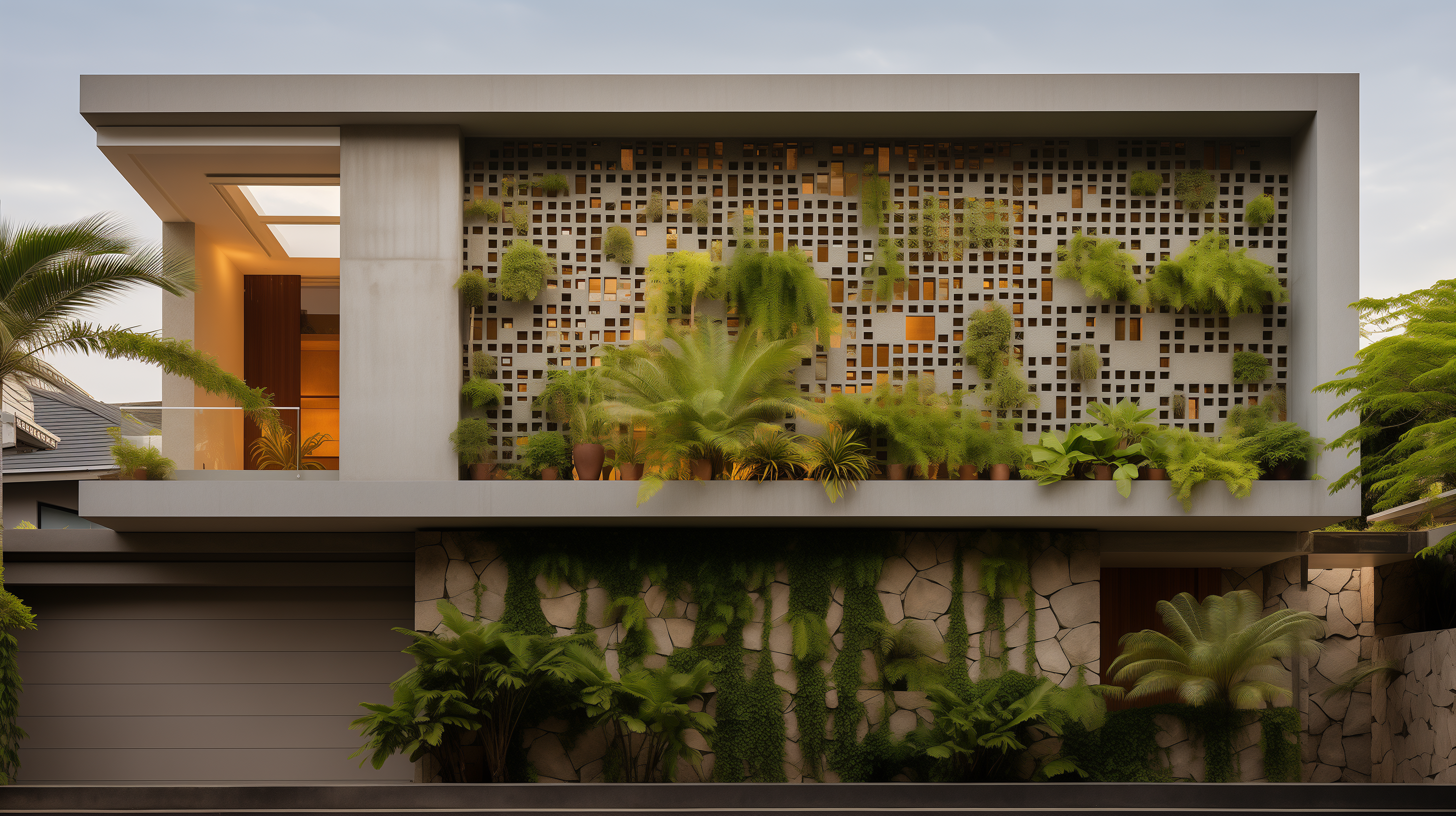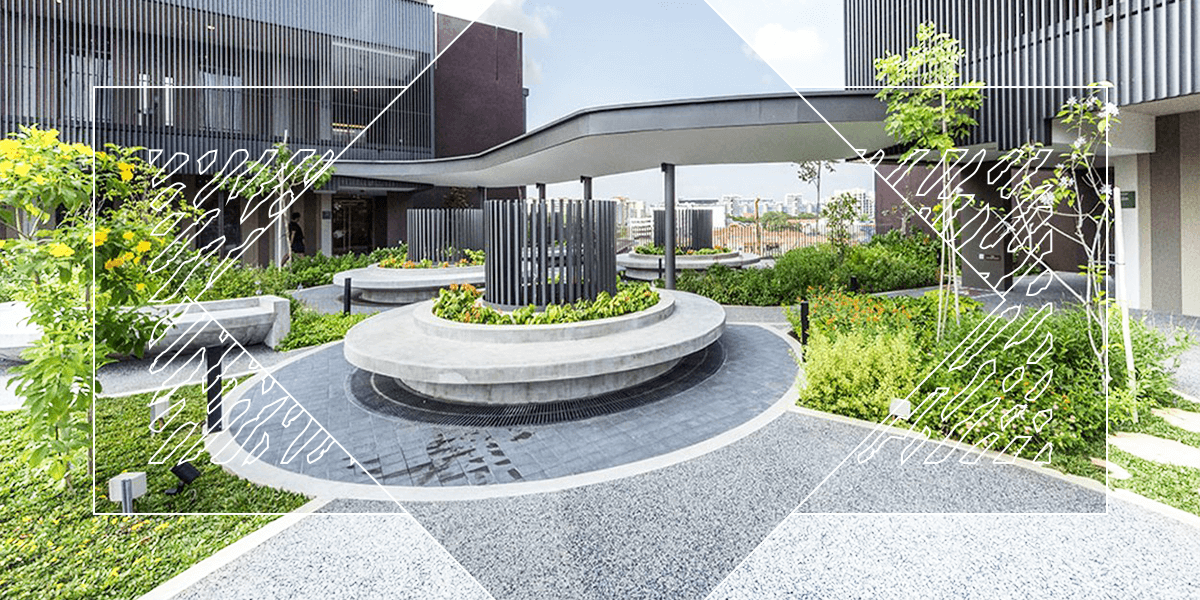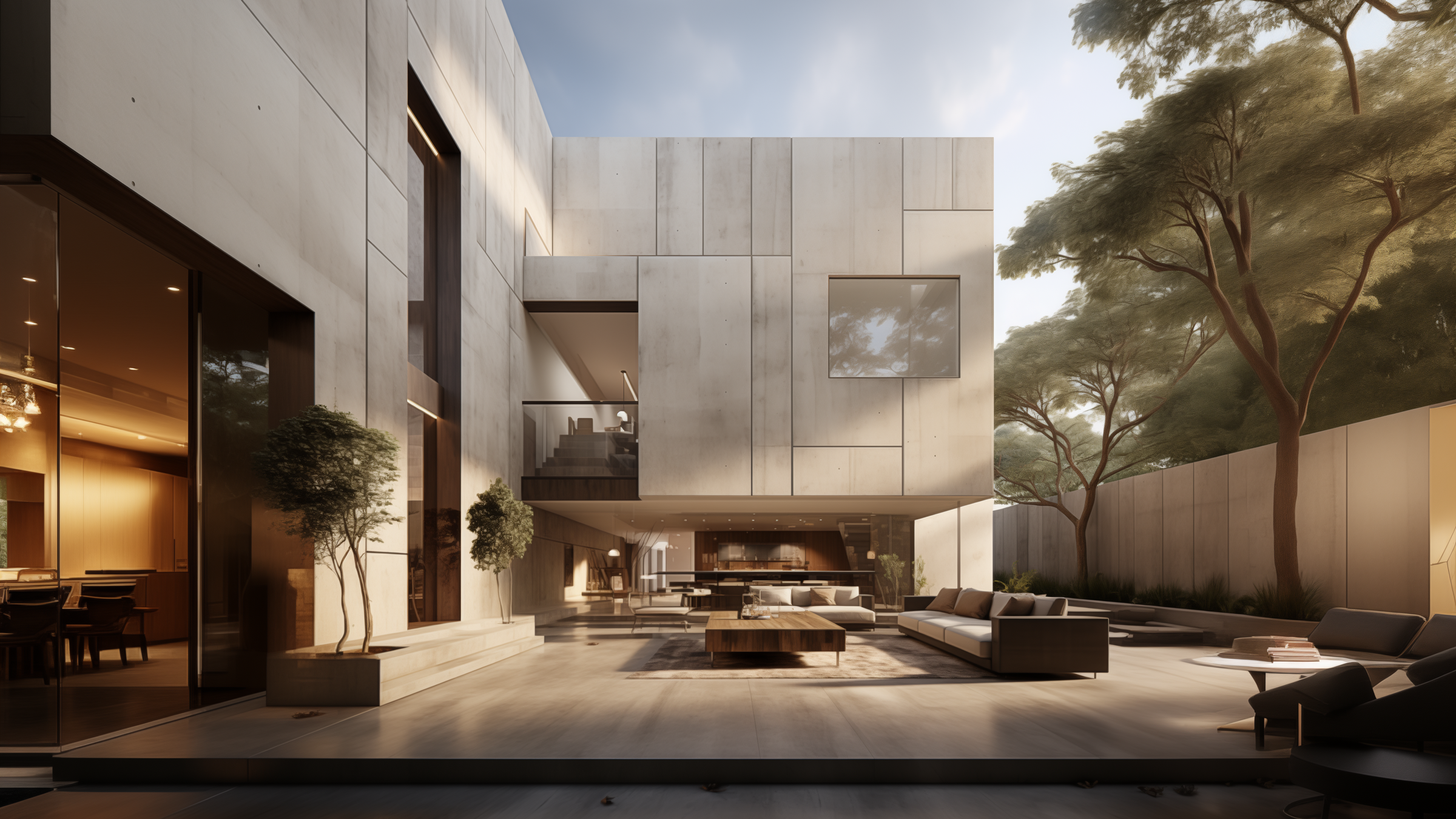If you’ve ever spent time in a hot, stuffy room, you understand how vital proper ventilation can be. However, this importance extends beyond the apparent comfort it provides. Proper ventilation can be key in protecting your health and the health of your home.
However, a proper ventilation system has many parts that you should understand separately. An excellent place to start is with vent covers. These are the most prominent feature of a ventilation system and are usually the only visible piece. If you understand the function of your vent covers, you can ensure you get the maximum benefit from your ventilation system.
What Is the Function of an Air Vent Cover?
Ventilation in a building helps ensure adequate airflow in an area. This can help stave off problems caused by dust, smoke, carbon monoxide, and other contaminants. In addition, ventilation is key to reducing humidity. When left unchecked, humid air can lead to a mix of warm and cool air that many people find uncomfortable. It can even provide an inviting home for a mould infestation.
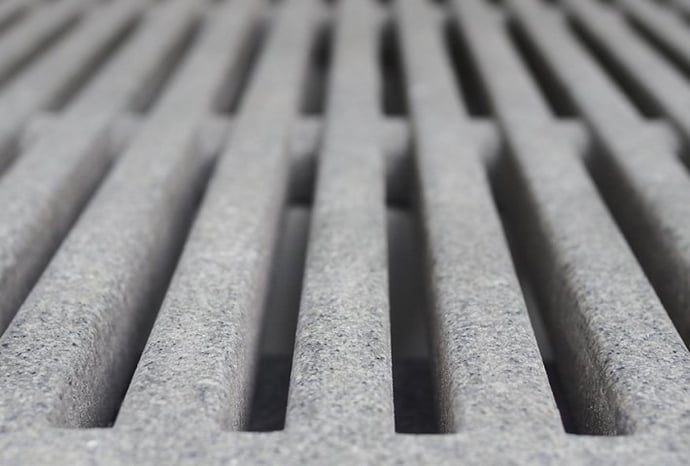
Vent covers serve the critical function of covering holes from ventilation systems and protecting the system itself.
To combat these issues, architects build ventilation systems when designing buildings. Some of them include active mechanical parts, such as fans, intake and outtake vents, and ducts. However, others use natural ventilation and may have large openings through which air flows unaided.
Whichever type of system is chosen, it will need to include multiple openings. This is where vent covers come into play. Adding vent covers allows you to cover up the gaping hole that would be there without the grille. Functionally, vent covers also protect the ventilation system. They prevent debris from entering while ensuring air can pass through. They also provide an aesthetic benefit by allowing the vent to look less out of place.
Applications of Vent Covers
Vent covers are typically the most noticeable feature in a ventilation system. In the past, many architects attempted to hide and minimise vent covers. At the time, vent covers didn’t look attractive, as they were designed to be purely functional and not visually appealing. Most were made of either aluminium or a metallic alloy.
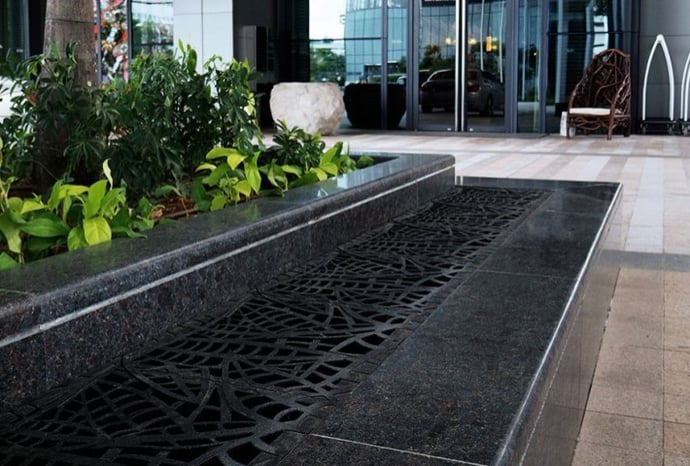 Modern vent covers can be used in a number of applications, from walkways to benches.
Modern vent covers can be used in a number of applications, from walkways to benches.
Now, times have changed. Modern vent covers from Jonite allow you to choose beautiful ventilation grilles while maintaining their functionality. Instead of attempting to hide every vent opening, there is now the option to use vent covers in a wider variety of applications.
Vent covers can be installed either vertically or horizontally. A common placement for vent covers is on walls and other vertical surfaces. This type of installation is generally very straightforward as they do not need to bear any weight.
In addition, vent grilles can be used on floors and walkways. The strength and load-bearing capacity of Jonite’s reinforced stone vent covers makes this more practical than ever before.
Floor vent covers can even double as walking paths. Their strength makes using them above basement car parks possible. The grilles can even be customised to support vehicular traffic in a similar way to trench grates.
Consider Using Magnetic Vent Covers
The passing of time hasn’t just improved the aesthetics of vent covers. Modern vent covers are now even more functional than before. A key area of improvement is the addition of magnets. To keep them in place, vent covers require some form of fixtures and fittings to install them properly. This is particularly important for vertical installations.
However, these same fixtures and fittings make it harder to access the ventilation system when maintenance is necessary. You might need to break out several tools and spend a good deal of time to clean out some dust caught in the system simply.
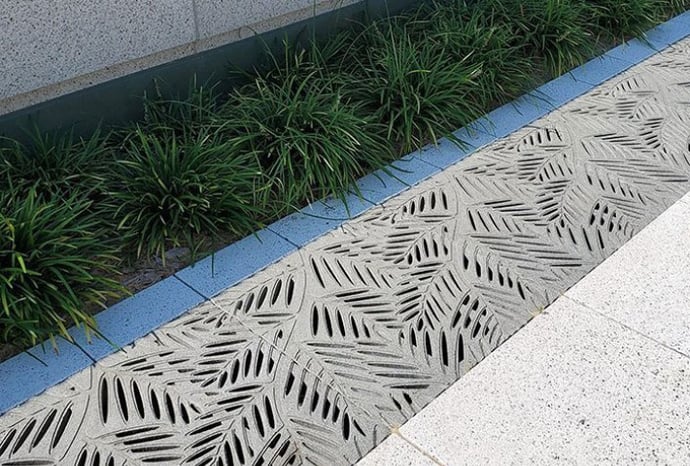 It’s important to consider aesthetic and practical factors when choosing custom ventilation grilles.
It’s important to consider aesthetic and practical factors when choosing custom ventilation grilles.
Magnetic vent covers offer a way to easily keep the covers in place with little hassle or movement. They are about as easy to install as traditional vent covers but allow for much easier removal. If they need to be replaced, they can simply be swapped out for new ones.
This is key for maintenance. Magnetic air vents can be easily removed when required. Even a quick cleaning becomes more manageable with magnetic vent covers. This turns a frustrating job into a quick task.
Incorporating Air Vent Covers
Traditional metal air vent covers stick out like a sore thumb. New design options make it easier to incorporate the covers with the rest of the desired look. You can choose what colour the reinforced stone will be. In addition, you can select the openings in the grille. This makes it easy to match the design with other landscape elements such as sump covers, creating a unified look overall.
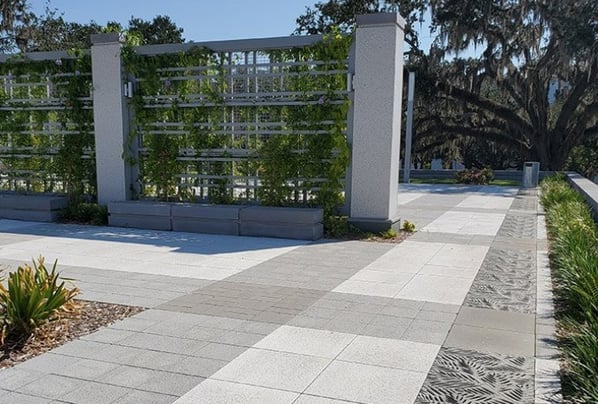 Ventilation grilles from Jonite can be customised to match other landscape elements and the overall design of the area.
Ventilation grilles from Jonite can be customised to match other landscape elements and the overall design of the area.
Ventilation grilles can even be used to create other elements. For instance, you could create a bench that doubles as a ventilation opening. Or the grilles could be used to make a design border near the hardscape of the area.
Include Beautiful and Functional Vent Covers in Your Design
Vent covers provide a practical way to help control airflow while covering the hole otherwise left from a ventilation shaft. Plus, new materials and design options allow you to have a fully functional cover that doesn’t detract from the surrounding design.
Get started by customising your Jonite ventilation cover to meet your particular needs.

